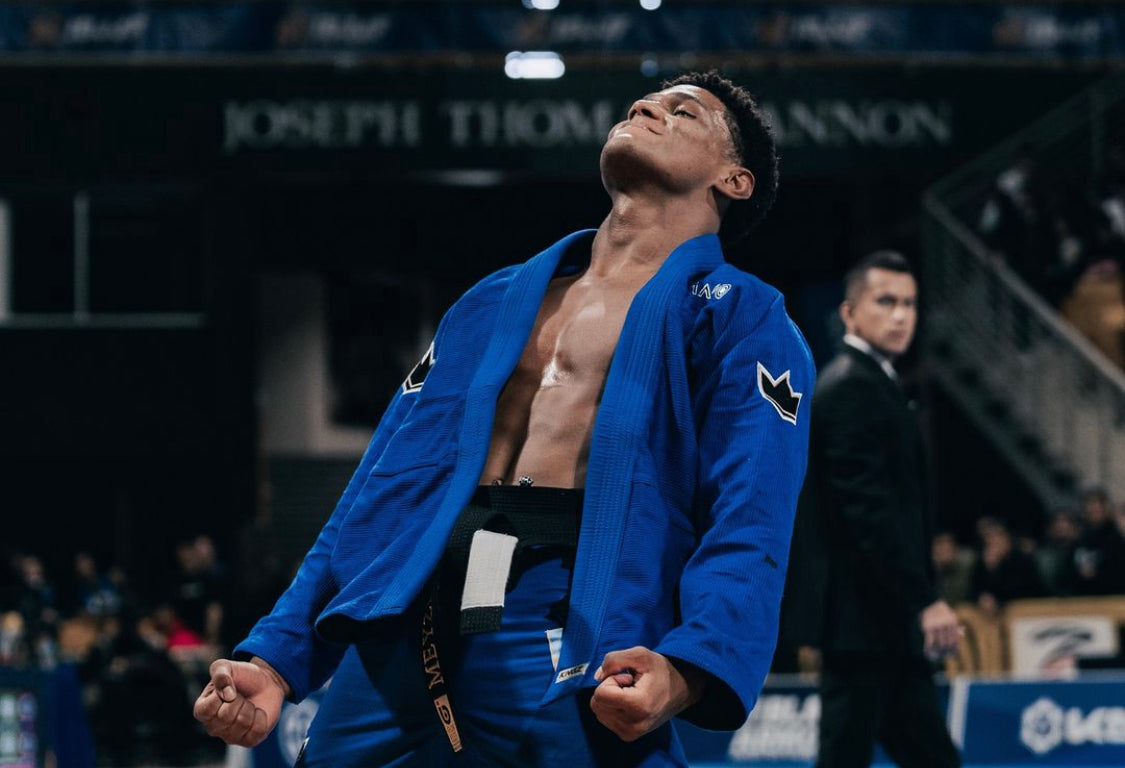News
Why Isn’t BJJ in the Olympics?

Why Isn’t BJJ in the Olympics?
As the excitement of the 2024 Summer Olympics in France winds down, I’ve been getting a lot of questions – both from people on and off the mat – about why Brazilian jiu-jitsu isn’t an Olympic sport. Considering breakdancing and badminton are on the roster, why not jiu-jitsu?
The answer lies in a combination of factors related to the sport's governance, structure, and the complex criteria for Olympic inclusion. I am certainly not an expert on this, but I can summarize some of the major information and arguments out there in the jiu-jitsu community today.
Lack of a Unified Governing Body
One of the primary reasons BJJ isn’t in the Olympics is the lack of a single, unified international governing body. The International Olympic Committee (IOC) typically requires a sport to be governed by a recognized international federation that oversees rules, competitions, and athlete representation globally.
In the case of BJJ, there are multiple organizations, each of which operate independently. This fragmentation makes it challenging to present a unified front necessary for Olympic inclusion. The International Brazilian Jiu-Jitsu Federation (IBJJF) boasts being the oldest and longest-running competitive jiu-jitsu organization, and still claims a large share of the market. And in fact, rumor has it that they have been involved in discussions around Olympic inclusion. However, despite its influence, the IBJJF has not yet unified all BJJ organizations under one banner – an impossible task – which is a crucial step for Olympic consideration.
Standardization Issues
BJJ, unlike sports like judo or wrestling, also lacks a standardized set of rules across all competitions. Different organizations have varying rules regarding points, match duration, legal and illegal techniques, and even uniform requirements. This is one of the aspects that makes jiu-jitsu so exciting and special for its practitioners.
However, the lack of consistency makes it difficult to establish a universal standard that the IOC would accept for the Olympics. Additionally, this “standardization” is what arguably changed the sport of judo for the worse. Originally, judo included a lot more takedowns that involved touching the legs; those have been eliminated in Olympic style judo.
The scoring system in BJJ is another hurdle in this sense. Jiu-jitsu’s points and submission-based system can be complex and subjective, which poses a challenge for judges and viewers alike, especially spectators that might have little experience watching jiu-jitsu. In the Olympics, where the emphasis is on clear, objective outcomes, this complexity can be a significant barrier. The potential for disputes and confusion over scoring could detract from the sport’s viability as an Olympic event.
Olympic Viability and Appeal
On that note, the IOC also considers a sport's viability and appeal when deciding on its inclusion. This includes factors such as global participation, media appeal, and whether the sport can engage a broad audience. While BJJ is incredibly popular within certain circles, it is still relatively niche compared to sports like gymnastics or swimming. The nature of BJJ matches, which can be slow-paced and highly technical, may not have the widespread viewer appeal that the IOC looks for.
Over the years, various proponents within the BJJ community, including athletes, coaches, and promoters, have voiced support for Olympic inclusion and argued for the viability and appeal of the sport. However, these efforts have not yet gained the traction needed to make a substantial impact.
Competition with Existing Sports
One of the biggest challenges to inclusion of BJJ in the Olympics comes from other, already established, Olympic sports. BJJ faces stiff competition from other combat and grappling sports, such as judo, wrestling, and boxing.
As part of policy, the IOC tends to avoid overloading the Games with too many similar sports. Since judo and wrestling already cover ground fighting and grappling, the inclusion of BJJ could be seen as redundant. This overlap makes it harder for BJJ to justify its distinctiveness in the eyes of the IOC.
Promotion and Lobbying Efforts
Finally, the process of getting a sport into the Olympics usually involves significant lobbying and promotion. Some sports, such as surfing, benefited from strong campaigns to demonstrate their global appeal and alignment with Olympic values. BJJ, on the other hand, has not yet seen a concerted, well-organized effort to push for Olympic inclusion.
There have been campaigns and lobbying efforts aimed at convincing the IOC to consider BJJ as well. These campaigns often emphasize the sport’s global reach, its technical aspects, and the benefits it could bring to the Olympic program. However, as mentioned before, these have failed.
While the absence of BJJ from the Olympics may disappoint some of its fans and practitioners, the reality is that there are several factors are at play. The lack of a unified governing body, standardization issues, and the sport's niche appeal all contribute to its exclusion.
However, as BJJ continues to grow and evolve, future efforts could potentially overcome these obstacles. But do we really even want - or need - it to be an Olympic sport?
